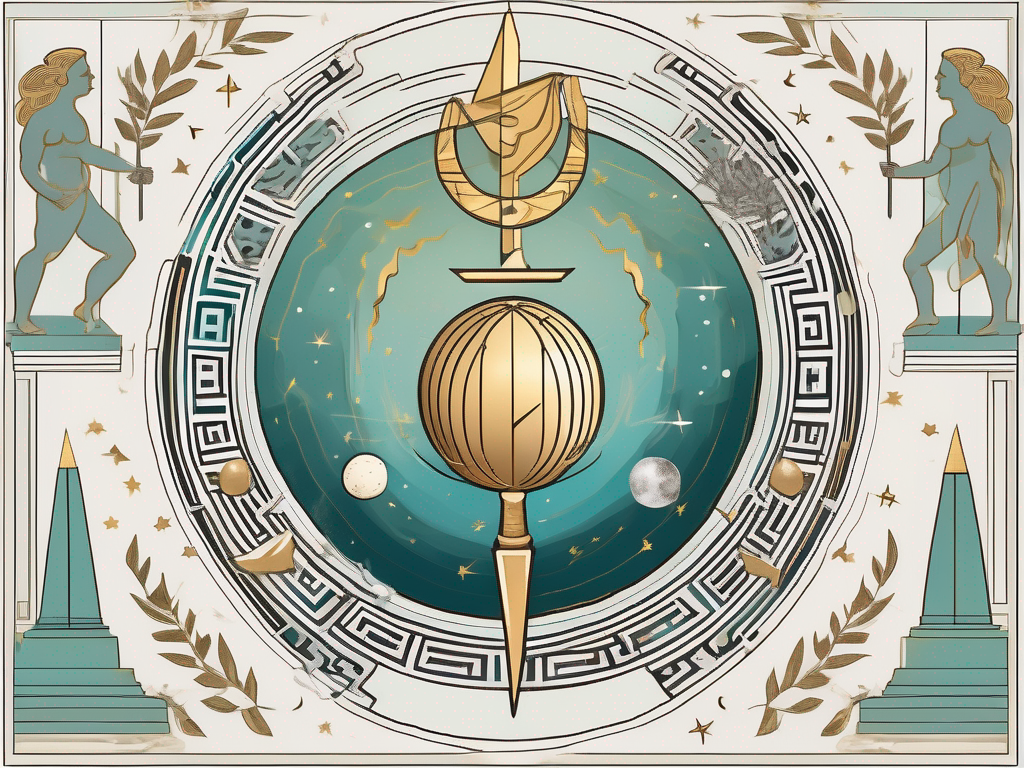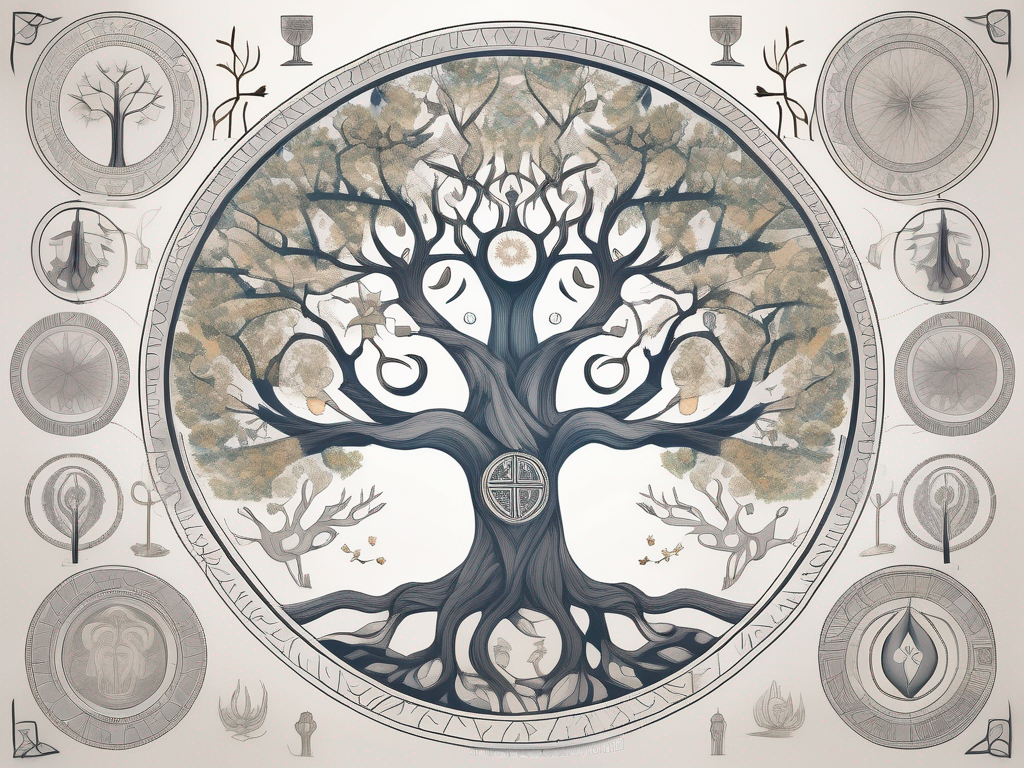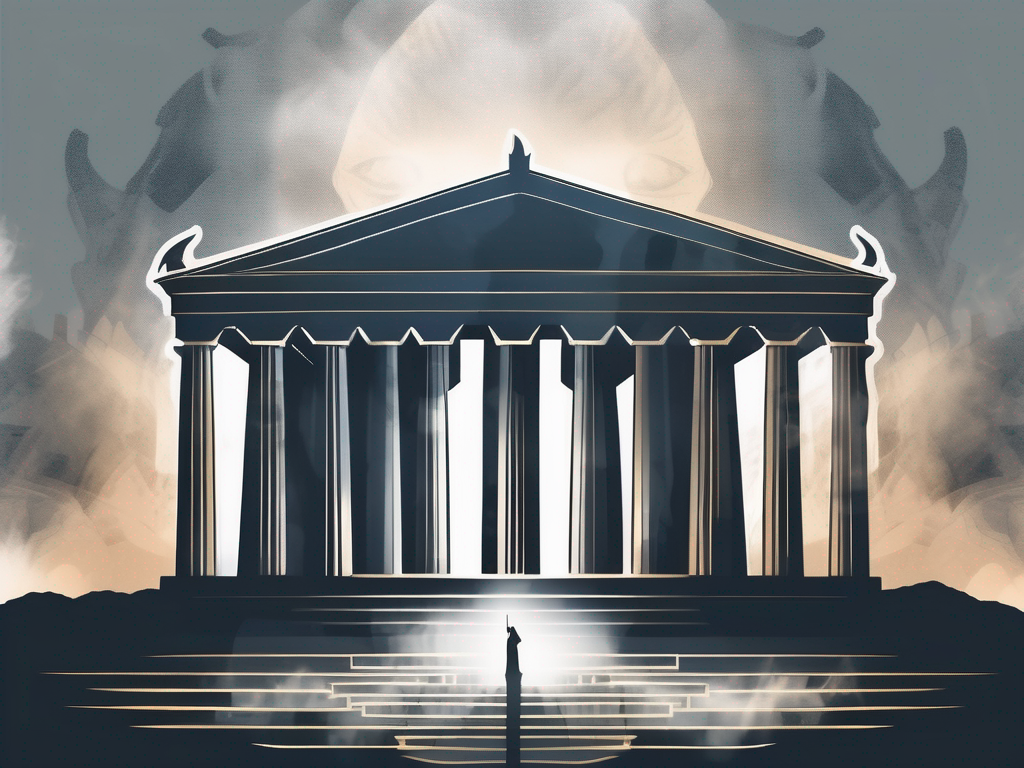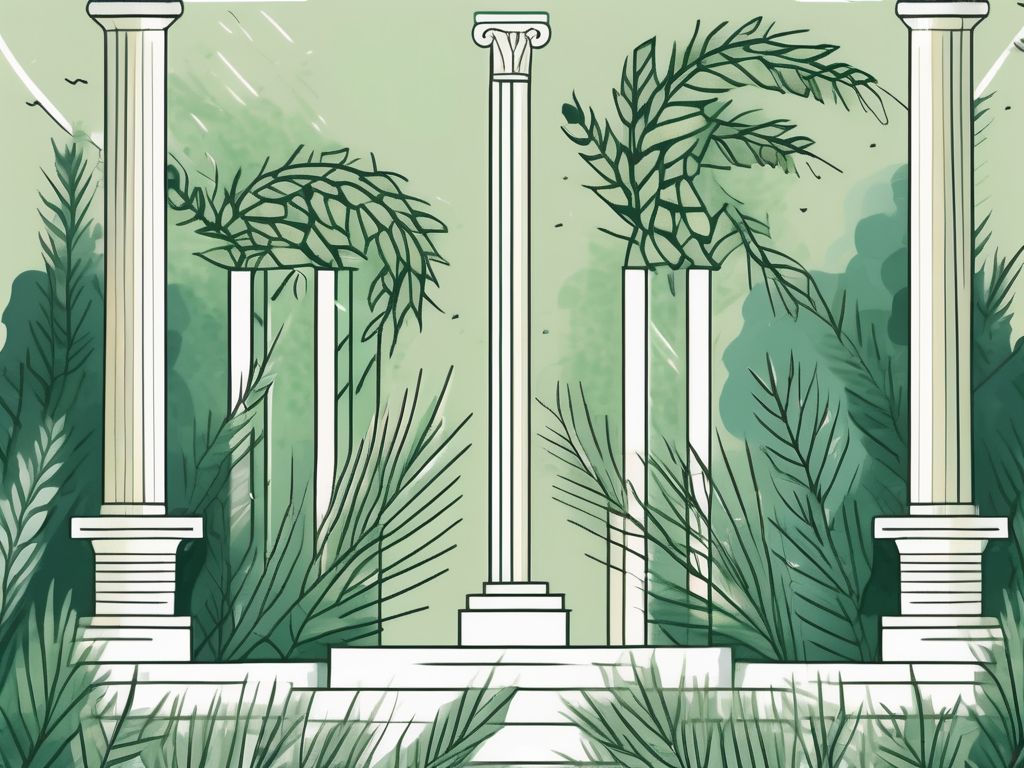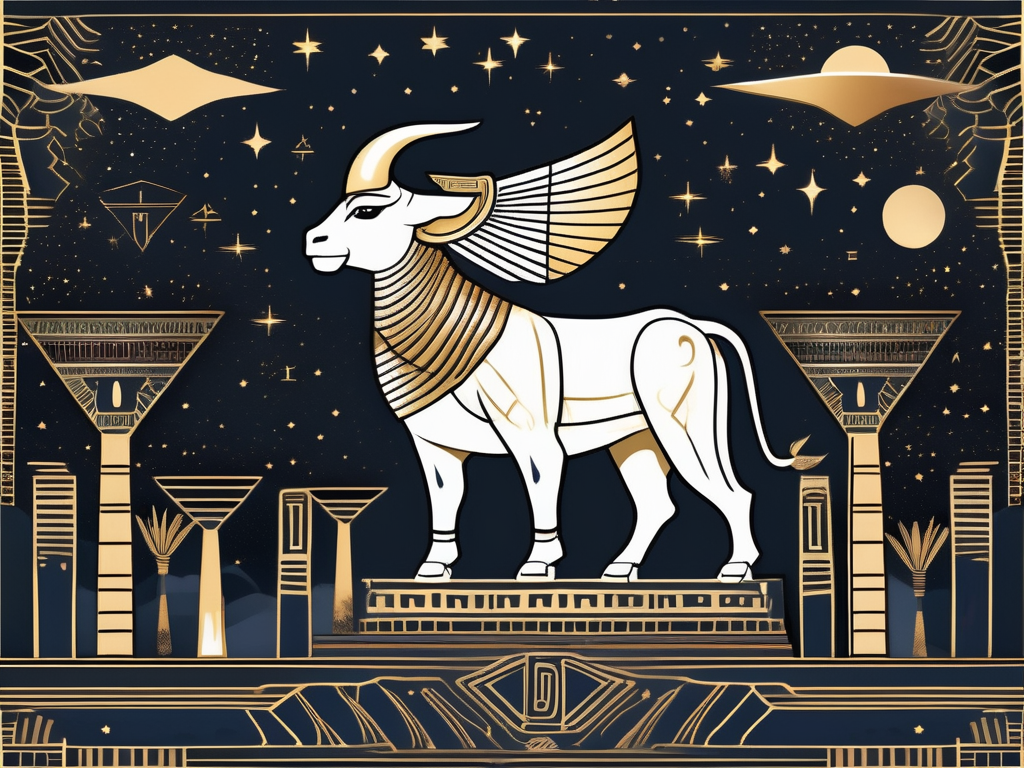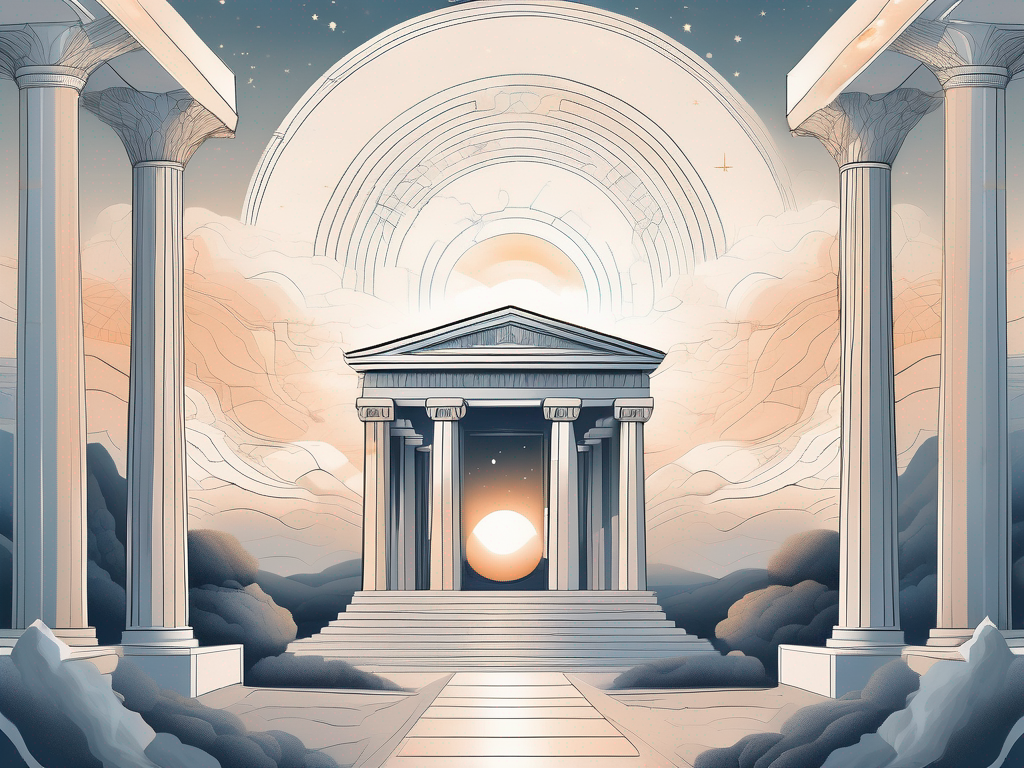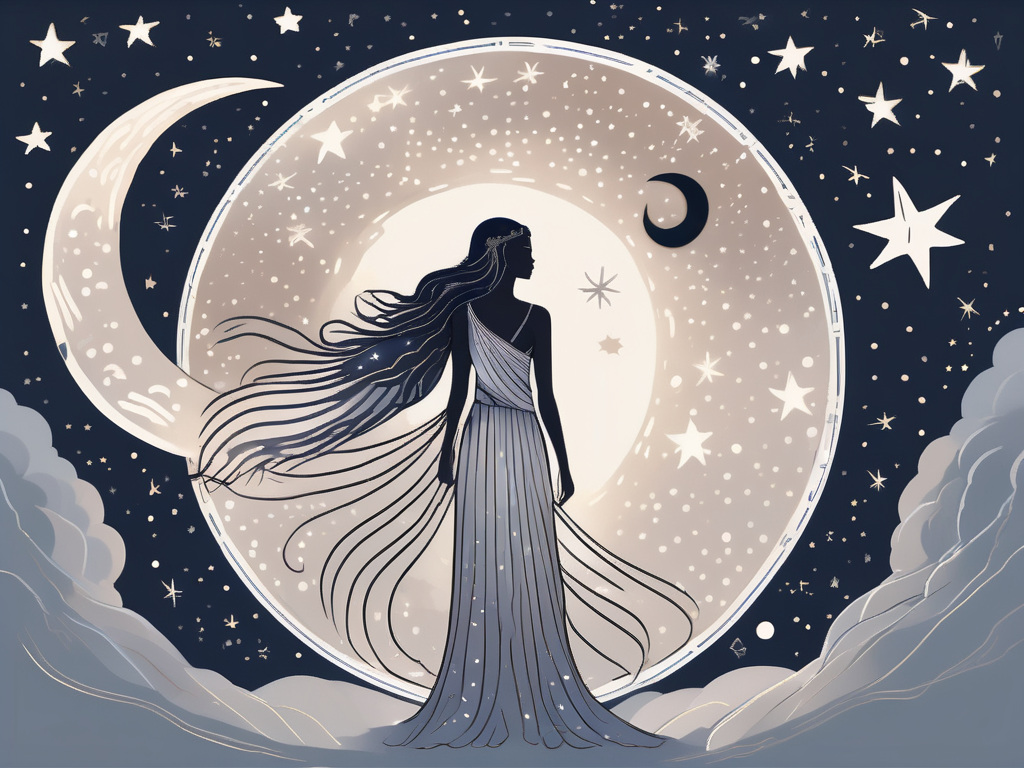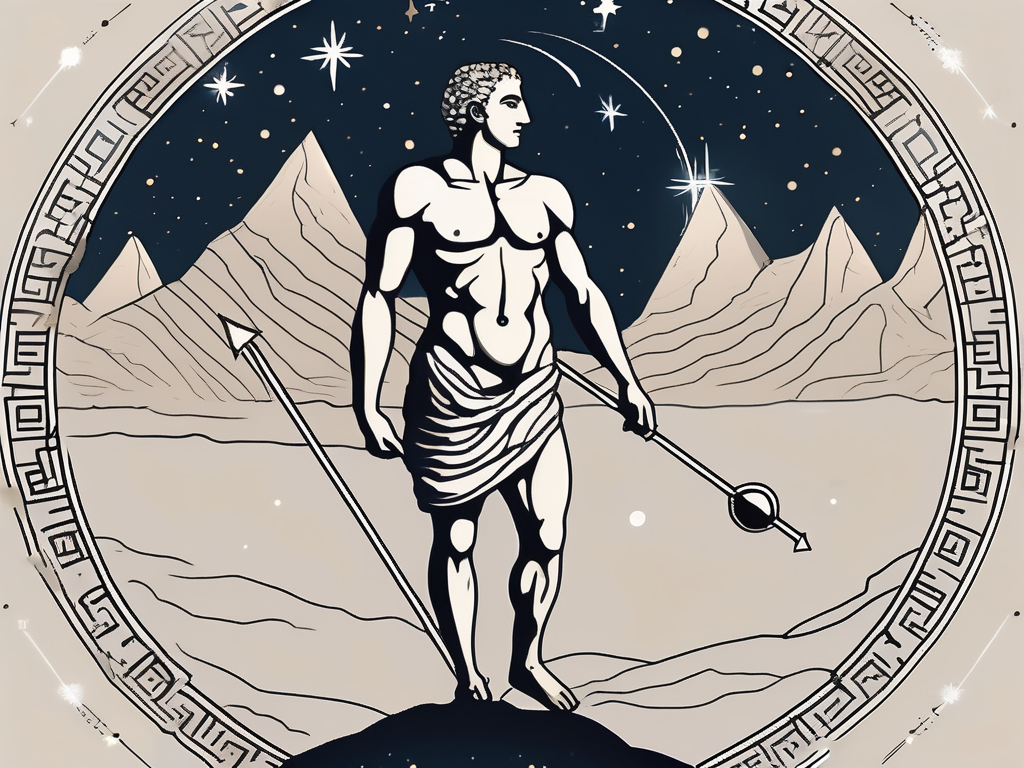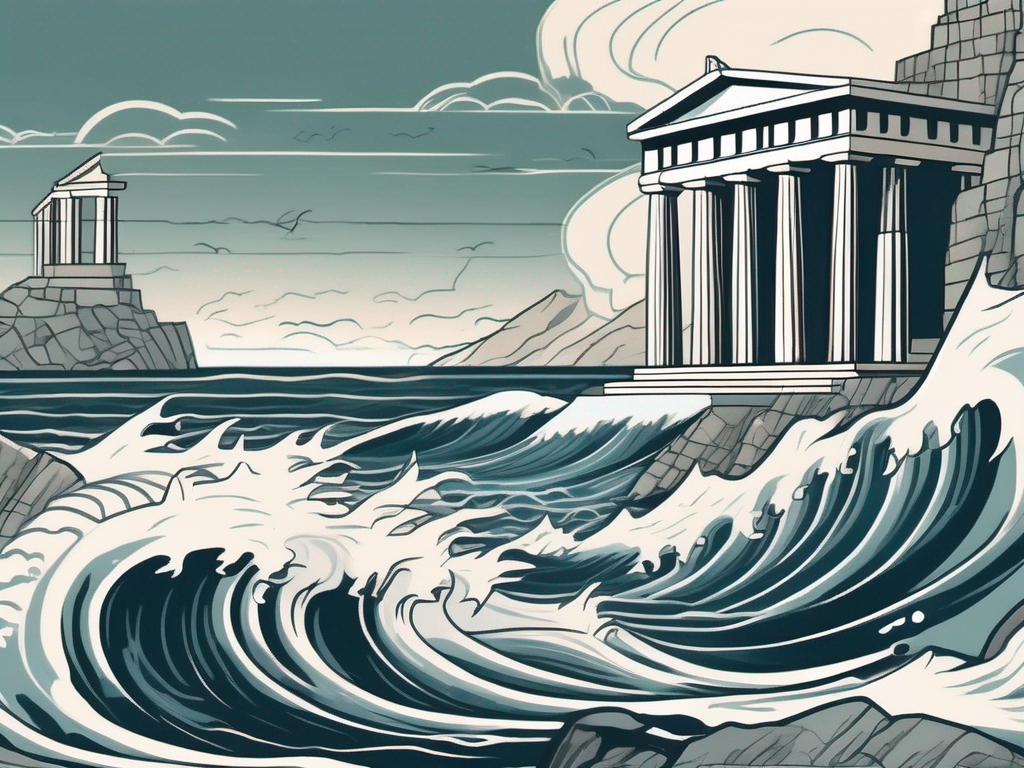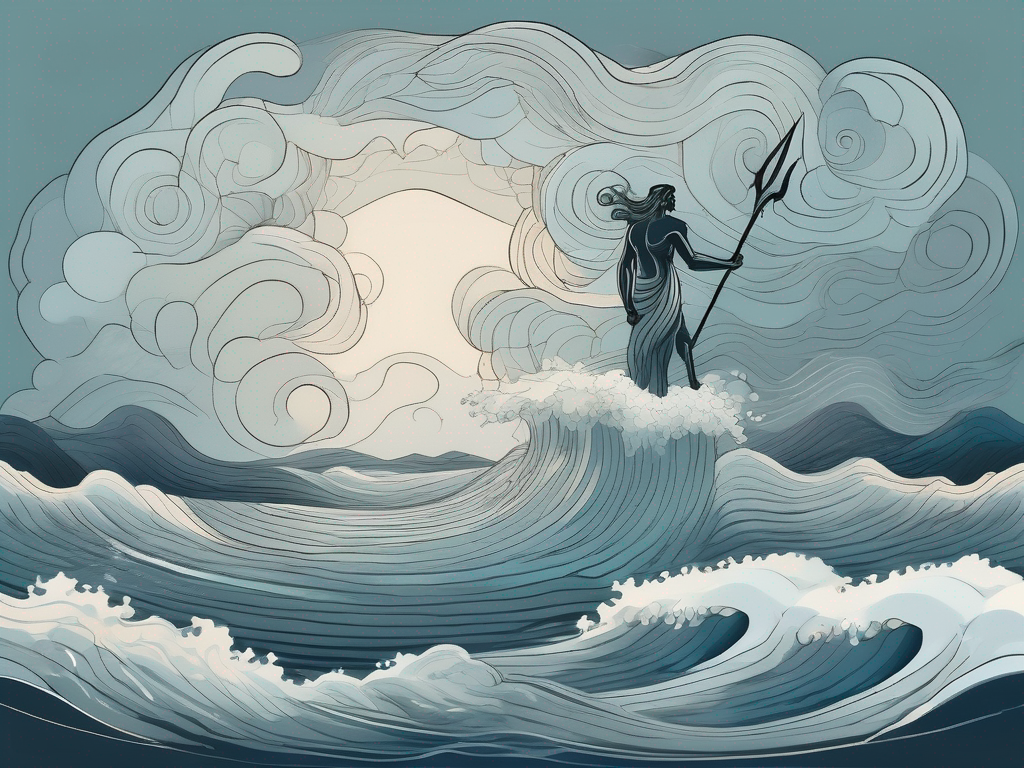Uranus is a fascinating figure in Greek mythology, and his origins and significance are worth exploring. In this article, we will delve into the various aspects of Uranus’ mythology, from his birth to his downfall and his lasting legacy. Let’s begin by understanding Uranus in Greek mythology.
Understanding Uranus in Greek Mythology
Uranus, also known as Ouranos, played a crucial role in the pantheon of Greek gods. The son of Gaia, the Earth, and the primordial god Chaos, Uranus represented the sky and was revered as the personification of all celestial phenomena. His birth story sets the stage for his importance in Greek mythology.
The Birth of Uranus
According to the ancient myths, Uranus was born from the union of Gaia and Chaos. As the heavens separated from the earth, Uranus became the ruler of the sky, surrounded by the ever-changing celestial bodies. This association with the sky became one of the defining characteristics of Uranus.
Uranus’ birth was a momentous event, marking the division between the earthly and heavenly realms. As he emerged from the union of Gaia and Chaos, the world witnessed the birth of a powerful deity who would shape the course of Greek mythology.
As the ruler of the sky, Uranus held dominion over the vast expanse above the earth. His presence was felt in the shifting patterns of the clouds, the brilliance of the stars, and the majestic display of the Northern Lights. The Greeks believed that every thunderclap and lightning bolt was a manifestation of Uranus’ power, a reminder of his authority over the celestial realm.
Uranus’ Role in the Pantheon
As a prominent deity, Uranus held a pivotal position in the pantheon of gods. He was not directly involved in mortal affairs but played a key role by serving as the father to numerous gods and titans. His offspring and their roles in Greek mythology shed light on Uranus’ family and relationships.
One of Uranus’ most famous offspring was Cronus, the titan who would eventually overthrow him. Cronus, driven by a desire for power, rebelled against his father and castrated him, thus usurping Uranus’ position as the ruler of the sky. This act of patricide marked a significant shift in the balance of power among the gods.
Uranus’ other children included the Titans, who played a crucial role in the cosmic order. These powerful beings, born from the union of Uranus and Gaia, represented various aspects of the natural world. For example, Oceanus personified the ocean, while Hyperion embodied the sun. The Titans, along with their siblings, the Cyclopes and the Hecatoncheires, formed the first generation of gods in Greek mythology.
Through his offspring, Uranus established a lineage that would shape the future of Greek mythology. His descendants, including Zeus, Poseidon, and Hades, would go on to become the ruling gods of Olympus, wielding immense power and influencing the mortal realm.
Uranus’ role as the progenitor of gods and titans highlights his significance in Greek mythology. Despite his eventual downfall, his legacy endured through his descendants, ensuring his lasting impact on the pantheon of gods.
The Symbolism of Uranus
In addition to being the personification of the sky, Uranus held symbolic significance in Greek mythology. His symbolism can be understood from two distinct perspectives: his role as the personification of the sky and his astrological significance.
Uranus as the Personification of the Sky
By embodying the sky, Uranus represented vastness, infinity, and the unknown. He was seen as the cosmic force that enveloped and connected everything in the universe. The Greeks believed that the sky was a divine entity, and Uranus embodied their reverence for this celestial realm.
Imagine standing on a mountaintop, gazing up at the night sky. The stars twinkle above, creating a sense of wonder and awe. This is the essence of Uranus, the personification of the sky. His presence evokes a feeling of boundlessness, as if anything is possible.
Uranus was often depicted as a majestic figure, with a regal crown adorning his head. His body was covered in shimmering stars, representing the countless galaxies and celestial bodies that exist beyond our reach. He stood tall, his arms outstretched, as if embracing the entire cosmos.
As the personification of the sky, Uranus was not only a symbol of the physical heavens but also of the limitless potential that lies within each individual. He reminded the Greeks that they were part of something greater, connected to a vast and mysterious universe.
The Astrological Significance of Uranus
In astrology, Uranus is associated with innovation, rebellion, and sudden change. It represents the breaking of barriers and the urge to challenge societal norms. Its transformative energy inspires revolution and enlightenment, urging individuals to think outside the box and pursue unconventional paths.
When Uranus aligns with a person’s birth chart, it ignites a spark of creativity and originality. It encourages individuals to question the status quo and seek new ways of doing things. This energy can manifest in various ways, from artistic breakthroughs to scientific discoveries.
Uranus is often referred to as the “Great Awakener” because its influence can disrupt established structures and bring about profound shifts in consciousness. It shakes things up, forcing us to reevaluate our beliefs and values. This can be both exhilarating and unsettling, as it challenges our comfort zones and pushes us to embrace change.
Those who are strongly influenced by Uranus in their birth chart are often seen as visionaries and trailblazers. They have a unique perspective on the world and are unafraid to challenge the status quo. Their ideas may be ahead of their time, but they have the power to inspire and transform society.
Uranus reminds us that change is inevitable and necessary for growth. It encourages us to embrace the unknown and embrace our individuality. By aligning ourselves with the energy of Uranus, we can tap into our own innovative spirit and create a better future for ourselves and the world.
Uranus’ Family and Relationships
Uranus’ family ties played a crucial role in shaping Greek mythology. His relationship with Gaia and his children contributed to the intricate web of divine beings that influenced the ancient Greek world.
The Marriage of Uranus and Gaia
Uranus married his mother Gaia, and together they became the progenitors of the Titans and other divine beings. Their union symbolized the connection between the sky and the earth, the harmonious integration of cosmic forces with the earthly realm.
The marriage of Uranus and Gaia was not without its complexities. Their relationship was both sacred and controversial, as it challenged the traditional norms of human society. The ancient Greeks believed that the gods and goddesses were not bound by the same moral codes as mortals, and thus, the marriage between Uranus and Gaia was seen as a divine union that transcended human understanding.
According to Greek mythology, Uranus and Gaia’s marriage was a source of great power and fertility. It was believed that their union gave birth to the Titans, who were the first generation of divine beings in Greek mythology. These powerful beings played a significant role in shaping the world and the lives of mortals.
Uranus’ Offspring and Their Roles
Uranus and Gaia bore many children, including the Titans, the Cyclopes, and the Hecatoncheires. The Titans, led by Cronus, played a significant role in Greek mythology, as did their offspring, such as Zeus, Poseidon, and Hades. The power struggles and conflicts within this divine family shaped the course of Greek mythology.
The Titans, born from the union of Uranus and Gaia, were powerful beings who ruled over the world before the reign of the Olympian gods. Each Titan had their own unique role and domain, contributing to the balance and order of the cosmos. Cronus, the leader of the Titans, was known for his role in overthrowing Uranus and establishing his own reign.
The Cyclopes, another group of offspring born from Uranus and Gaia, were known for their exceptional craftsmanship and strength. They were responsible for forging the powerful weapons and artifacts used by the gods and heroes in Greek mythology. The Cyclopes played a crucial role in the battles and conflicts that shaped the ancient Greek world.
The Hecatoncheires, born with a hundred hands and fifty heads, were fearsome beings who were eventually imprisoned by Uranus. These monstrous creatures were later released by Zeus during the Titanomachy, the great war between the Titans and the Olympian gods. The Hecatoncheires played a pivotal role in the victory of the Olympians, contributing to the establishment of Zeus as the supreme ruler of the gods.
The intricate relationships and dynamics within Uranus’ family had far-reaching consequences in Greek mythology. The power struggles, betrayals, and alliances shaped the course of ancient Greek history and influenced the beliefs and values of the people. The stories and legends surrounding Uranus and his family continue to captivate and inspire us, reminding us of the enduring power of myth and the complex nature of human relationships.
The Downfall of Uranus
Despite his lofty position, Uranus’s downfall was inevitable. Prophecies and fear ultimately led to his demise, paving the way for a new generation of gods to take over.
The Prophecy and Uranus’ Fear
Uranus received a prophecy that his offspring would overthrow him. Consumed by fear and possessiveness, he sought to prevent this outcome by imprisoning his children within Gaia’s womb. This act of tyranny sowed the seeds of rebellion and ultimately led to the downfall of Uranus.
The Overthrow of Uranus by Cronus
Cronus, one of Uranus’ sons, could not bear the tyranny inflicted upon him and his siblings. With Gaia’s help, Cronus castrated Uranus, effectively usurping his father’s power. This act marked the end of Uranus’ reign and the beginning of a new era in Greek mythology.
The Legacy of Uranus in Greek Mythology
Although Uranus was no longer a ruling deity, his influence reverberated throughout Greek mythology, shaping the stories and beliefs of later generations.
Uranus’ Influence on Later Generations of Gods
As a primordial deity, Uranus played a vital role in setting the stage for the subsequent generations of gods. His actions and their consequences rippled through time, affecting the lives and destinies of both gods and mortals.
Uranus in Modern Interpretations of Greek Mythology
The mythology of Uranus continues to captivate modern audiences. Writers, artists, and scholars have drawn inspiration from Uranus’ story, reimagining and interpreting it in various forms. His significance as the personification of the sky and the catalyst for change resonates with contemporary society.In conclusion, Uranus, the Greek god of the sky, had a profound impact on Greek mythology. From his birth to his downfall, his symbolism and relationships shaped the narrative of the gods’ existence. Even though Uranus was no longer ruling, his legacy endured, reminding us of the enduring power and significance of ancient mythology.
